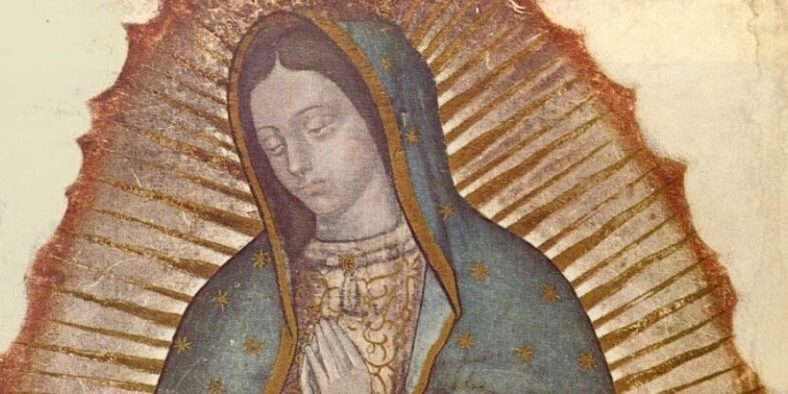Reclaiming Fatherhood: A Father’s Irreplaceable Role
“Men, do not hesitate to engage in the battle that is raging around you, the battle that is wounding our children and families, the battle that is distorting the dignity of both women and men. This battle is often hidden, but the battle is real. It is primarily spiritual, but it is progressively killing the remaining Christian ethos in our society and culture, and even in our own homes.”
― Bishop Thomas Olmsted, Into the Breach
I don’t need to tell you that our culture is hopelessly confused about everything having to do with sex and gender. As conservative commentator Matt Walsh showed powerfully in his documentary that went viral on Twitter recently, there are a growing number of people who can’t answer as simple a question as, “What is a woman?”
But it’s not just womanhood that we are confused about. Our culture is riven by debates and competing messages about the nature of “real” manhood and “real” fatherhood.
On the one side we see messages suggesting that “real” manhood is expressed in an exaggerated androgyny based upon the notion that any expression of traditionally “masculine” traits is fundamentally “toxic.” On the other hand, one finds messages suggesting that a “real” man must always look and behave like the stereotype of an action hero: physically powerful, emotionally stunted, and in perpetual need of attaining dominance to prove his masculinity.
It’s no surprise that, given our confusion about the nature of manhood, we are also hopelessly confused about fatherhood. Nowhere else does one find more evidence of this than in our popular entertainment.
How many movies or TV shows have you seen in which the father is either portrayed as the butt of the jokes, or as the villain? At best, he is shown to be weak, ineffectual, and helpless: an embarrassment to his children, who can scarcely believe his incompetence, and a perpetual disappointment to his wife, who must continually lower her already-low expectations.
At worst, however, the father is portrayed as malevolent: someone who actively harms his wife and children by his overbearing, stifling presence, and sometimes his outright violence. Such a father is an ice-cold presence in the home, crushing his children’s personalities and imposing his will on his wife, heedless of her needs or desires.
The Parable of the Merciful Father
Yes, it is true that there are bad fathers in the world, and inevitably (and understandably) our entertainment will portray some of those bad fathers. However, it sometimes seems as if our culture-makers are unable even to imagine what a good father might look like. They can’t imagine a story in which the father is not the source of pain or discord but is rather the anchoring presence that provides the love and support for which his wife and children are yearning.
For Christians, we naturally turn towards Scripture when we are confused. On the one hand, it is true that in the myriad stories found in the Scriptures we do find some depictions of flawed fathers who hurt their children, or fail in countless ways. These are cautionary tales given to us by the Biblical authors. However, we will also find some of the most beautiful depictions of fatherhood found in any literature anywhere.
I think it is fair to say that the most beautiful of all the Scriptural stories, and the one that is most needed in our contemporary culture, is the parable of the prodigal son. Of course, Jesus told this parable to illustrate the love that God the Father has for us. However, insofar as God the Father is the emblem of fatherhood itself, every father can and should meditate frequently on this parable.
We all know the basic outlines of the story, and so I won’t repeat them here. However, in an audience in 1999, Pope St. John Paul II, in meditating upon the story, suggested that while we call the parable the parable of the “prodigal son,” it really should be called the parable of “the merciful father.” And this because it is the father, not the son, who is the true protagonist of the story.
In this story, “God’s attitude is presented in terms that are truly overwhelming in comparison with human criteria and expectations,” said Pope St. John Paul II. Looked at through human eyes, the younger son deserved everything that he got. His behavior was an unspeakable violation of social and moral expectations of the time, in which the sons were expected to live at home and work for their father until he died, and then receive their inheritance, after a lifetime of service.
“Leaving the father’s house clearly expresses the meaning of sin as an act of ungrateful rebellion with its humanly painful consequences,” noted Pope St. John Paul II. “Human reasonableness, in some way expressed in the elder brother’s protest, would have recommended an appropriately severe punishment for the younger son’s decision before he could fully rejoin the family.”
And yet, the father tosses all of this to the side, prioritizing loving compassion over legalistic punishment. “Mere legalism is surpassed by the father’s generous and gratuitous love,” said Pope St. John Paul II, “which exceeds human justice and calls both brothers to be seated again at the father’s table.”
The Holy Father concluded his meditation:
The merciful Father who embraces the prodigal son is the definitive icon of God revealed by Christ. First and foremost, he is Father. It is God the Father who extends his arms in blessing and forgiveness, always waiting, never forcing any of his children. His hands support, clasp, give strength and, at the same time, comfort, console and caress.
The Paradox of Strength
As noted above, our modern world views men and fathers with suspicion. Either they are portrayed as hopelessly weak, or, if they are strong, it is with a cruel strength: a strength expressed in the exercising of raw power over the members of a man’s household.
The “merciful father” of the parable is not weak. He is a powerful man: a rich landowner. His behavior throughout the parable suggests a man who knows his own mind. He commands his servants to obey him, and they do. When his older son complains, he confidently explains his view and invites the older son to see things his way.
However, his strength is not a strength that he lords over anyone. In this, he is fundamentally Christ-like. Indeed, a central message of Christ’s ministry is that power that expresses itself in domination is paradoxically a weak power. True strength is found in having power, and in choosing to use that power only in service of others.
“You know that the rulers of the Gentiles lord it over them, and the great ones make their authority over them felt,” Christ told his disciples. “But it shall not be so among you. Rather, whoever wishes to be great among you shall be your servant; whoever wishes to be first among you shall be your slave. Just so, the Son of Man did not come to be served but to serve and to give his life as a ransom for many” (Matthew 20:25-28).
This is the paradox of true power, expressed so memorably by St. Paul, when he wrote, “Therefore, I am content with weaknesses, insults, hardships, persecutions, and constraints, for the sake of Christ; for when I am weak, then I am strong” (2 Corinthians 12:10).
Nowhere is this paradox more powerfully expressed than in the image of Christ on the cross. There is Christ, the incarnate God Who assured His disciples that He could instantly command twelve legions of angels to come to His assistance (Matthew 12:26), hanging on a cross, completely subject to the power of others. And yet it is this act of self-sacrifice, of seeming utter helplessness, that turns out to be the greatest act of power ever performed in the history of humanity. It is the perfect act of concentrated love that changes everything, that saves the entire human race.
Our Crisis of Fatherhood
All signs point towards the fact that we are living through a crisis in fatherhood. In the United States, millions of children live without a father present in the home. Tragically, research shows that children from broken homes are statistically more likely themselves to get divorced or have children out of wedlock, thus perpetuating a cycle of fatherlessness.
However, one of the bizarre things about our culture’s contempt for masculinity and fatherhood, is that there is a massive body of irrefutable scientific evidence that shows that the mere presence of a father in the home can make all the difference for his children. Children who grow up in broken homes are far more likely to suffer from poverty, poor academic performance, out-of-wedlock pregnancy, substance abuse, depression, and on and on.
And so, even as our culture reviles men and fathers as “toxic,” we are collecting ever more evidence of the critical importance of their presence.
Although, to be fair, perhaps our cultural bitterness stems in part from the legitimate failures of so many fathers. One can’t help but wonder, for instance, how much of our confusion about gender also stems from the prevalence of divorce and single-parent households. So many of our children have never even seen what healthy masculinity or fatherhood might look like. Their primary memory of fatherhood may be of their father simply leaving home one day, and never returning.
No wonder religious belief is also falling. If the Bible teaches us that God is our Father, and our sole experience of fatherhood is an experience of abandonment, then why would we want anything to do with God? If we turn towards and depend upon God our father, we will only be disappointed, as we were by our earthly fathers.
Fathers: Be Strong, as Christ is Strong
In the midst of this crisis, there is an enormous need for men to step up to the plate, and to heal the wounds of fatherlessness by living a fatherhood modelled on the fatherhood of God the Father.
Our culture will continue to debate endlessly about the nature of “real” manhood and fatherhood. Personally, I would not expect much good to come of most of those debates, which often are highly ideological and politicized.
Instead, we need men who will turn back to the Scriptures and get back in touch with the fundamental simplicity of good fatherhood, of true leadership, of authentic strength. We find all of this expressed beautifully in the parable of the merciful father (prodigal son). We see it, too, in the brief, but evocative depictions of St. Joseph, that quietest of all Scriptural heroes, whose strength is not conveyed in great gestures, or magnificent accomplishments, but rather in a quiet, humble, steadfast obedience to the will of his Heavenly Father, and in an unshakeable fidelity in his love for the Blessed Mother and Christ.
In my travels around the world, I have met more families than I can possibly remember. And despite the undeniable crisis of fatherhood, and contrary to the messages found in our popular entertainment, what I have found is that most fathers are, in fact, good fathers. They love their children. They are faithful to their wives. They quietly sacrifice every day to support their families. They invest their heart and soul into the welfare of their children, rejoicing in their successes and feeing their struggles as their own.
However, what sets so many of them apart, is that they do not draw attention to themselves. They do not celebrate their heroism. They simply wake up every day and give themselves in a spirit of service to their wife and children. To many on the outside, this does not appear as strength. But the wife and children of such a man know the truth. Such a father may be quiet, gentle, unassuming, and humble, and yet he is a pillar in the home.
He is wise enough to know that strength is not found in dominance, but in love: the self-sacrificial, generous, unconditional love of the merciful father. The father who is so centered upon something greater than himself, that he is able to give without counting the cost. He has the strength of Christ: the strength to resist the temptations of power, and instead to embrace service as a way of life.
This Father’s Day, let us counteract the toxic messages of our media, and celebrate men such as these. Authentic fatherhood takes many forms: but at its core there must be a Christ-like love and fidelity. So many of the problems in our world would be solved if we can only help our young men see and understand the nature of true fatherhood, breaking the cycle of fatherlessness, and finding the deep fulfillment that comes in strength used in service.
As president of Human Life International, Fr. Boquet is a leading expert on the international pro-life and family movement, having journeyed to nearly 90 countries on pro-life missions over the last decade. Father Boquet works with pro-life and family leaders in 116 counties that partner with HLI to proclaim and advance the Gospel of Life. Read his full bio here.







